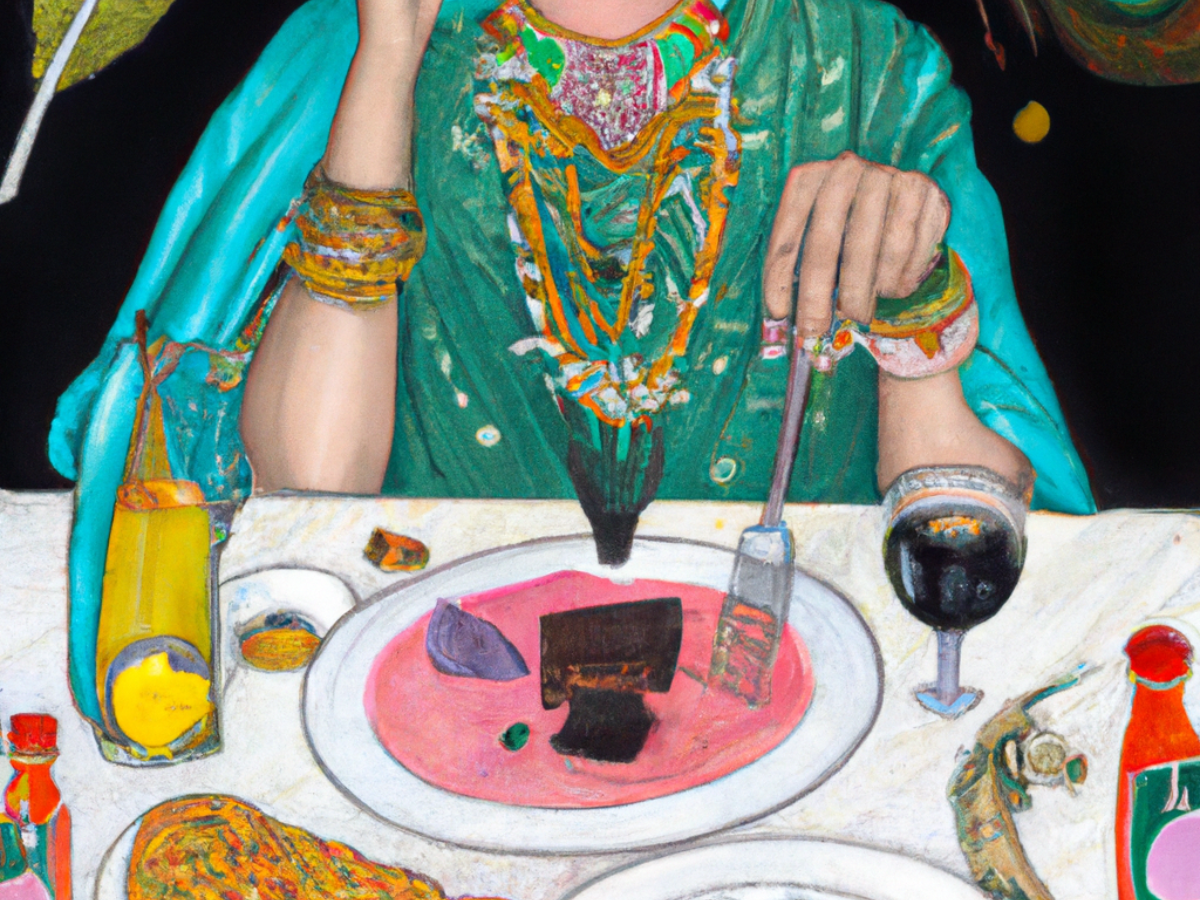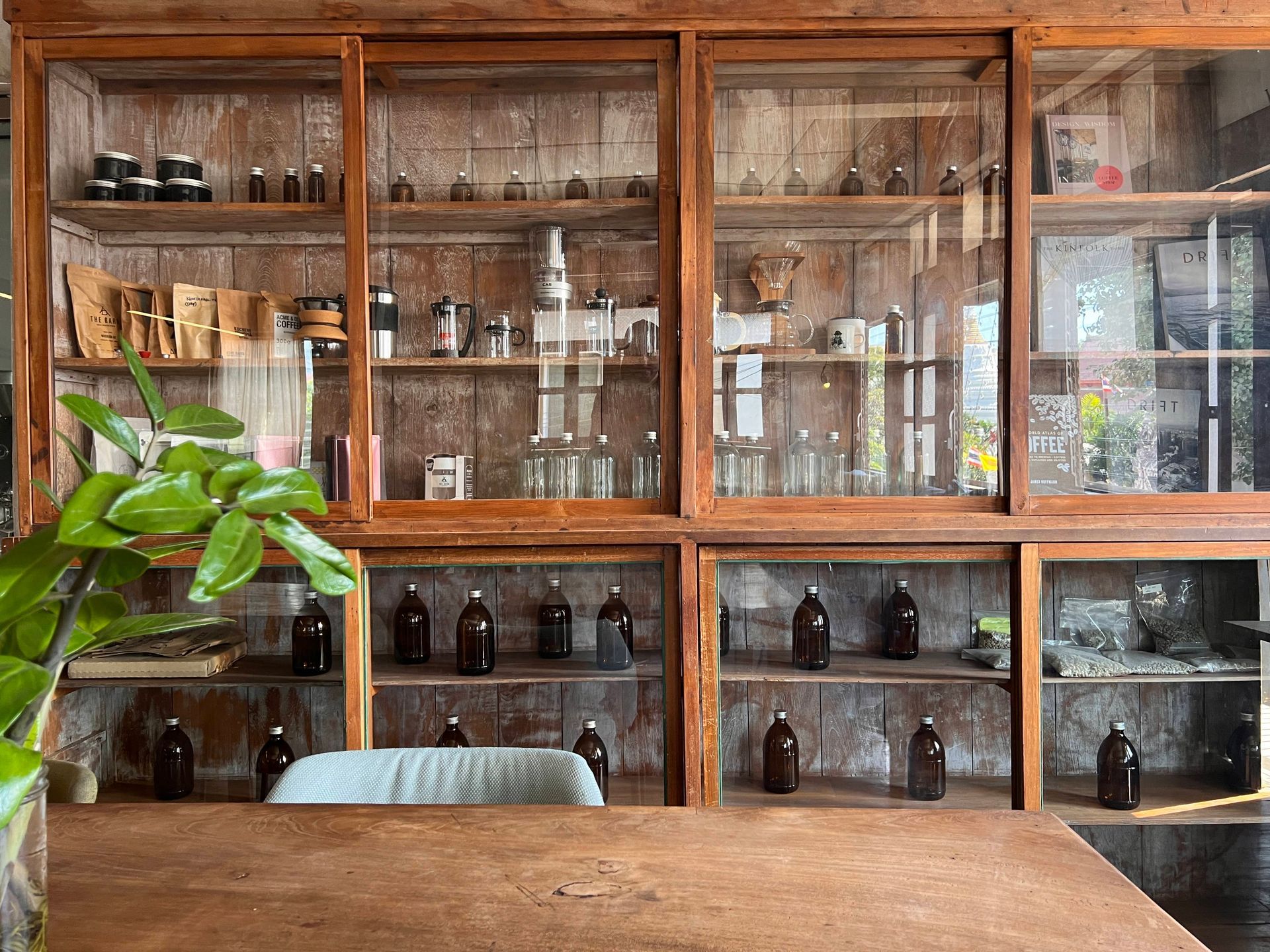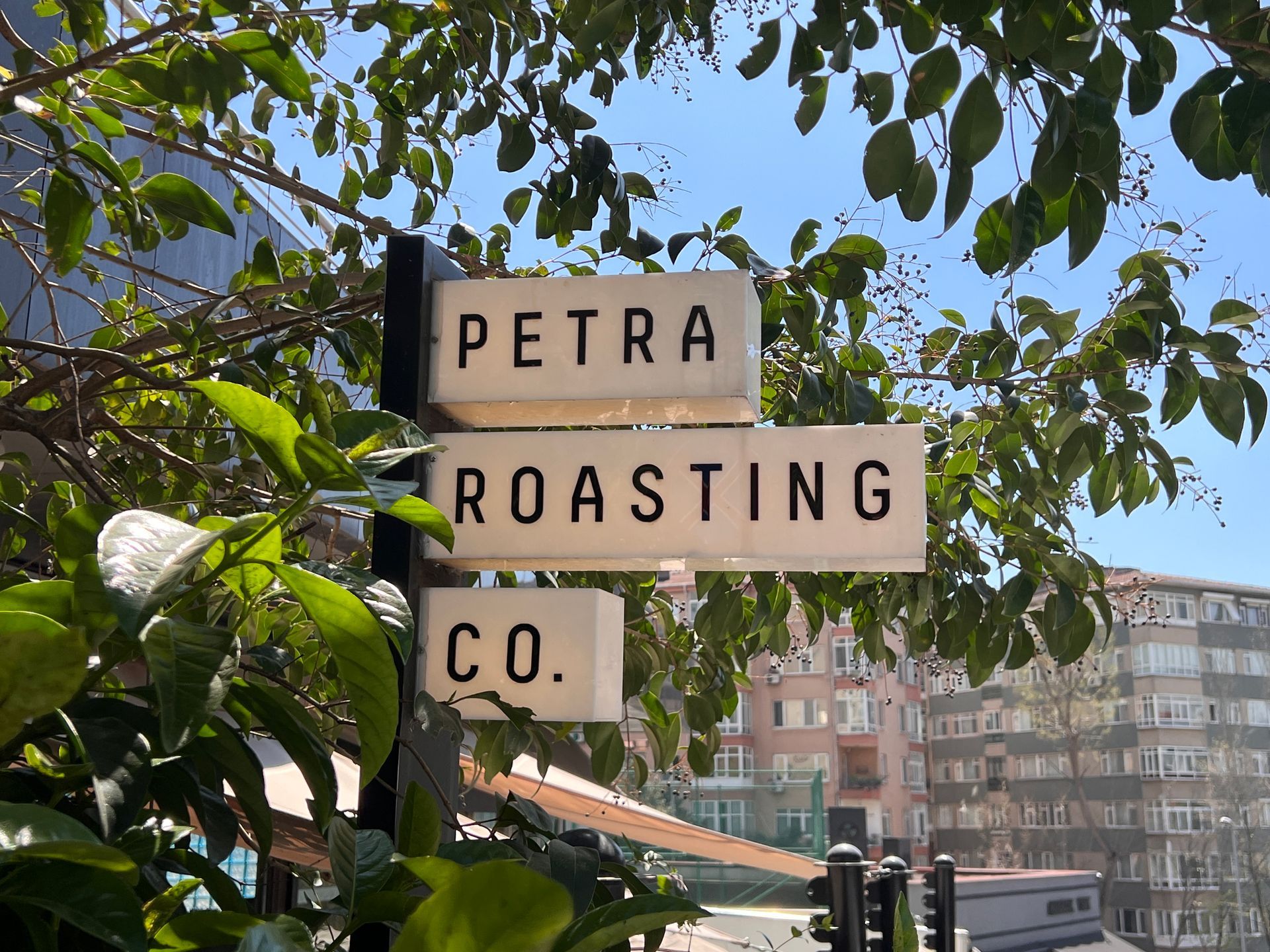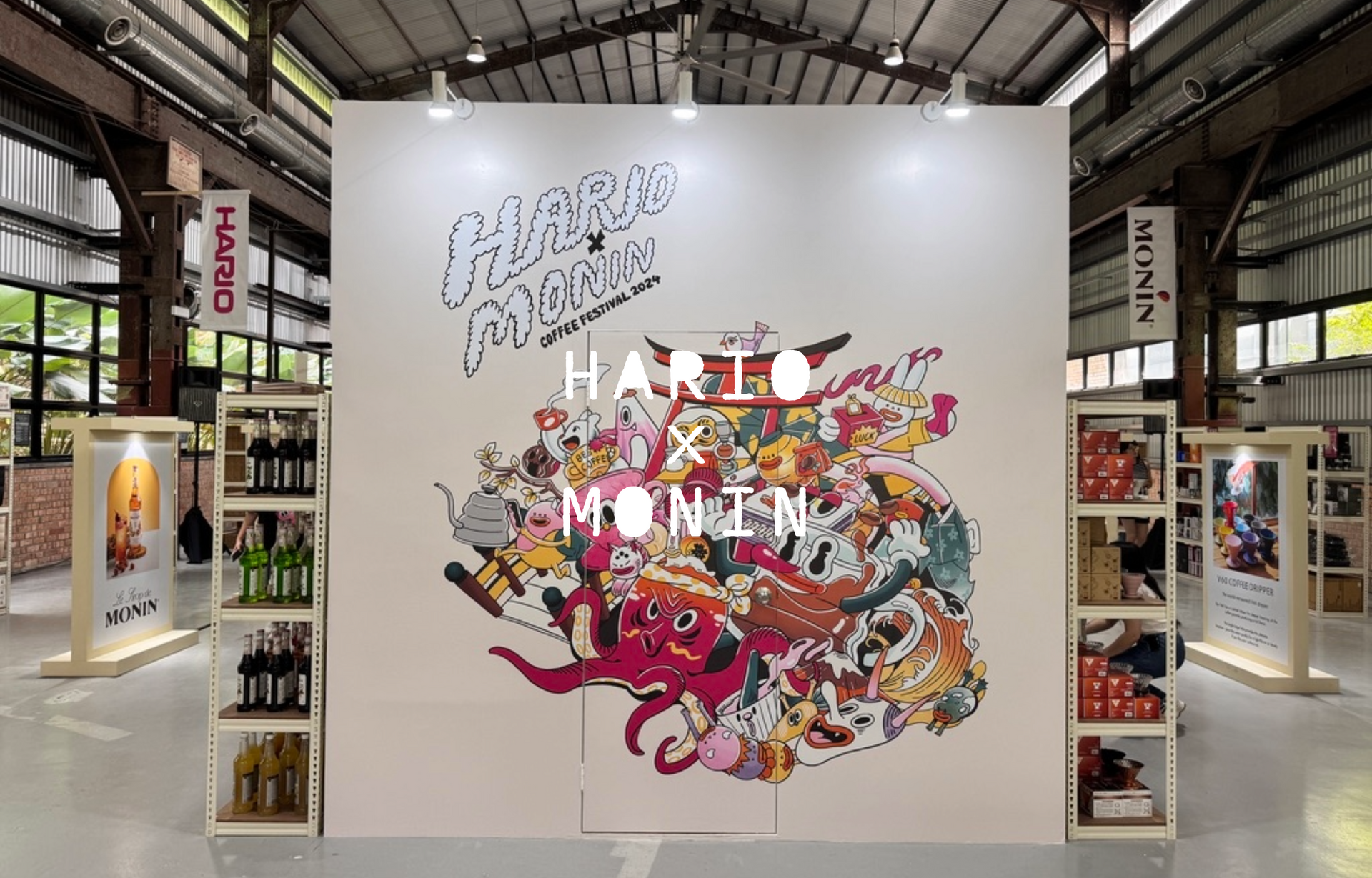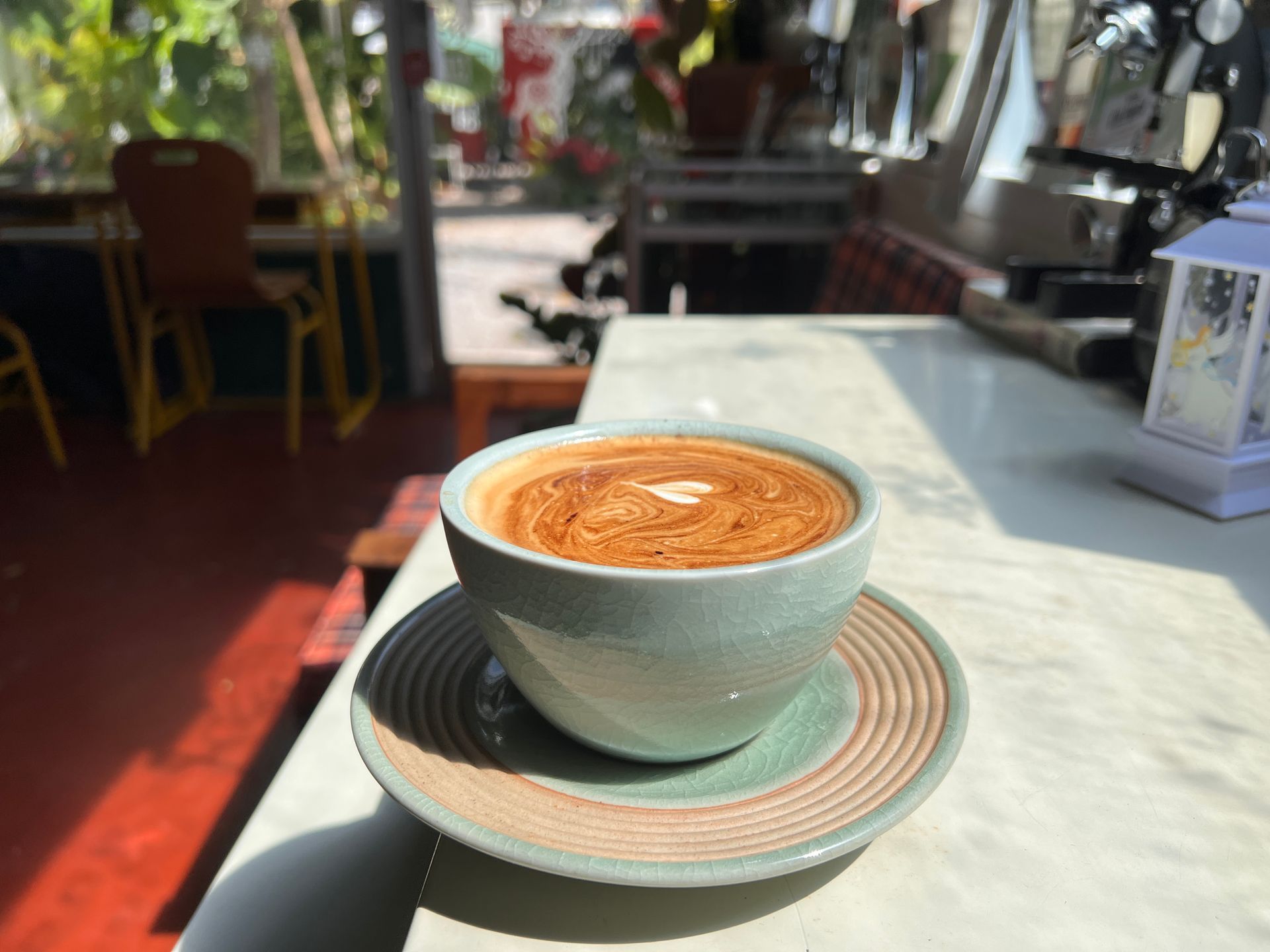An Interview With JHOL
A TALK WITH ANIRBAN NANDI
Having grown up in Tamil Nadu eating Idli, Masala Dosa, Vadai, dishes most westerners would never have heard of (especially in the late 80's / early 90's), Indian food has been an intrinsic part of my genetic make-up. It is the only cuisine I genuinely get cravings for, so much so that on a weekend visit to Muscat or Tangiers you'll see me frantically searching google for a Saravana Bhavan or Indian restaurant to cure the itch. Growing up in the blue mountains, seafood was not a staple for us. This avenue of riches was introduced on holidays to Kerala, where the catch of the day were proudly displayed on wooden tables at the beach and you'd point to your fish and hope they took the freshest one and cooked it in the kitchen for your dinner. I still remember them rubbing a deep red chilli-garlic-ginger rub on the knife cuts of the flesh to penetrate the inside as it sizzled in the tandoor. A squeeze of lime, red onion and fresh green chilli on the side, and you'd be grinning from ear to ear.
Coastal Indian Cuisine was a largely unnoticed food bounty until Jhol started their restaurant in Sukhumvit four years ago. Sure, everyone has heard of a Chicken Tikka Masala or a Garlic Naan, but not many know how delicious a Goan fish curry can be, with it's delicate spices and coconut milk. Or how deep fried fish in Kerala are the perfect accompaniment to a lunch thali. Or kingfish steaks, or pomfret, or huge prawns in fiery gravy, and North to the even sweeter flavours in the Bay of Bengal where the locals like their food very differently to Chennai.
A big misconception would be to relegate all Indian food to a heavy meal you eat before a visit to the pub to soak up the booze, or someone who eats it regularly but never strays from the "Chicken Madras, Garlic Nan, Kingfisher" order.
I visited Jhol at the beginning of 2023, after patiently waiting two years due to the flight restrictions during Covid 19, watching them post teasing videos on their social media of dishes I wanted to dive headfirst into. It was agony sitting in my living room in Northern Europe knowing that people in Bangkok were being privy to this kind of generosity. Well, the world began to open up, and finally I managed to return to my second home, Bangkok, the city of Angels, and made reservations at Jhol. A couple of friends joined, as I consider it sacrilege to dine alone when the options will be so limited. It's always better to bring a group and sample as many dishes as you can (unless of course you opt for the Tasting Menu).
The meal was a consummate success. It brought back memories of childhood, the curry leaves (something most people in Europe, until recently, would never have seen in their dish before), the aromas, the textures, the flavours, they all granted the deepest satisfaction after so long a wait.
Another thing that struck all of us was the service. It was exemplary. We were welcomed as friends, and the waiter was so adept at knowing when to chime in with a comment and when to stand back and observe. Some restaurants are destroyed by overly fussy waiters constantly battering you with useless facts about how the root of a plant is dried in hibiscus fire before fermenting on a dung beetle. I don't care. If I need that type of education, I'll buy a book. No, Jhol's staff were courteous, non-judgemental, friendly and genuine. That only made the meal taste better.
In the subsequent months I have recommended the restaurant to countless friends who have all sent back glowing reports. Not a single one had a bad experience. That is testament to a well run ship, and a restaurant where the staff feel proud to work and share that camaraderie with those who enter the doors.
Graciously, GM Anirban Nandi took the time to reply to a list of questions I sent to him, with the express purpose of not only digging a little deeper into their philosophy, but giving Jhol the chance to explain things from their side of the hotplate.
Below are the transcripts of the interview in near verbatim.
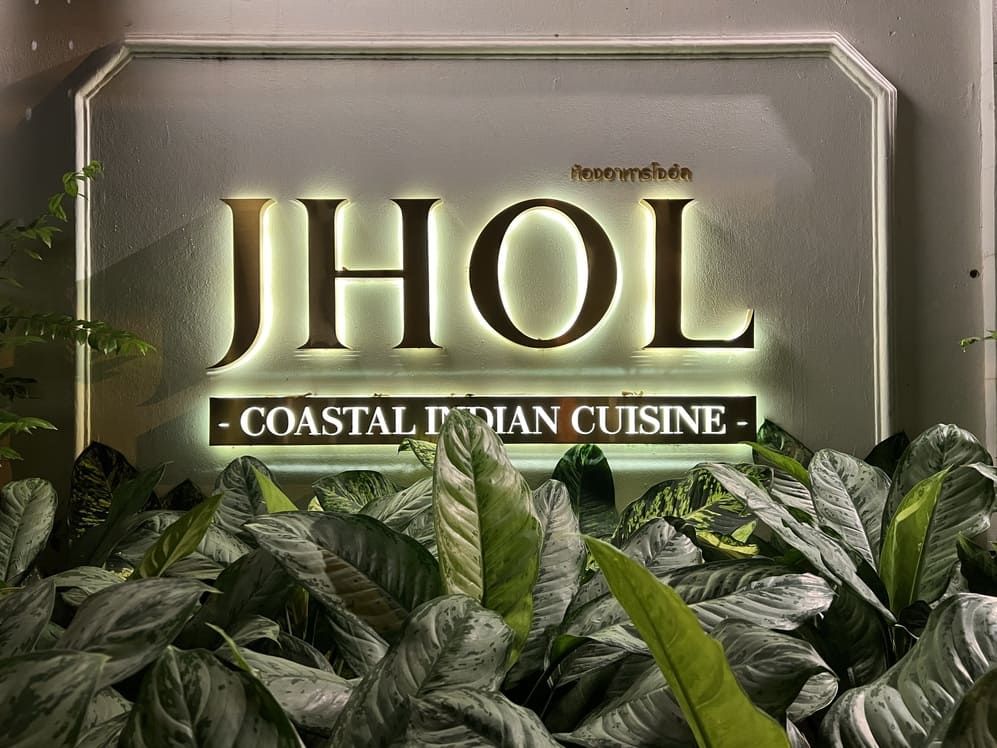
We can start at the beginning with an introduction and a summary of "What is Jhol?", for a reader who hasn’t visited Bangkok or your restaurant yet.
Jhol opened its doors in 2020, the restaurant concept is by chef Hari Nayak, one of the most well known Indian chefs. He is almost 45 so he is one of the old school Indian (yet very modern in his approach) chefs that left India and made a name for himself along with people like Athul Kochhar & Vineet Bhatia to name a few.
Chef Hari (click here for his chef BIO) has a lot of restaurants worldwide, most of his food is modern Indian but not too modern, in that it doesn't lose its Indian-ness. In JHOL's case, the restaurant is Coastal Indian food, and India's coastline is over 7500 Kilometres long, starting from the West, to the South and East, with nine states. Those include (starting in the west) with Gujarat, then Goa, Maharashtra, and the south with Karnataka, Kerala, Tamil Nadu, Andra Pradesh, then moving up you have Odisha and West Bengal.
So the thought is very simple: India's coastline eats very differently as it is such a big continent, and the food is so diverse, but for some reason Indian food outside of India has been wrongly interpreted, with mostly Northern Indian food like Butter Chicken, Chicken Tikka Masala etc. Tasting menus with chefs interpretations, or most of the restaurants in Bangkok tend to be North Indian.
We do Ala carte as well as tasting menu, but our inspiration is the whole coast. We will always be Ala Carte as well as tasting menu so that the guests have the option. The restaurant atmosphere is "casual elevated". We don't call ourselves fine dining because we don't understand what it means. Most of our guests are actually local Thais. There are a lot of similarities between this part of the world and coastal Indian food based on the ingredients.
Our moto has been to take our inspiration from a lot of lesser-known regional dishes. To promote food that is not typically North Indian. Don't get me wrong, I love my butter chicken and chicken tikka masala, but most Indian restaurants here will serve only these dishes, so we don't have either of those on the menu, and don't even serve naan for example. That's what we do at Jhol.
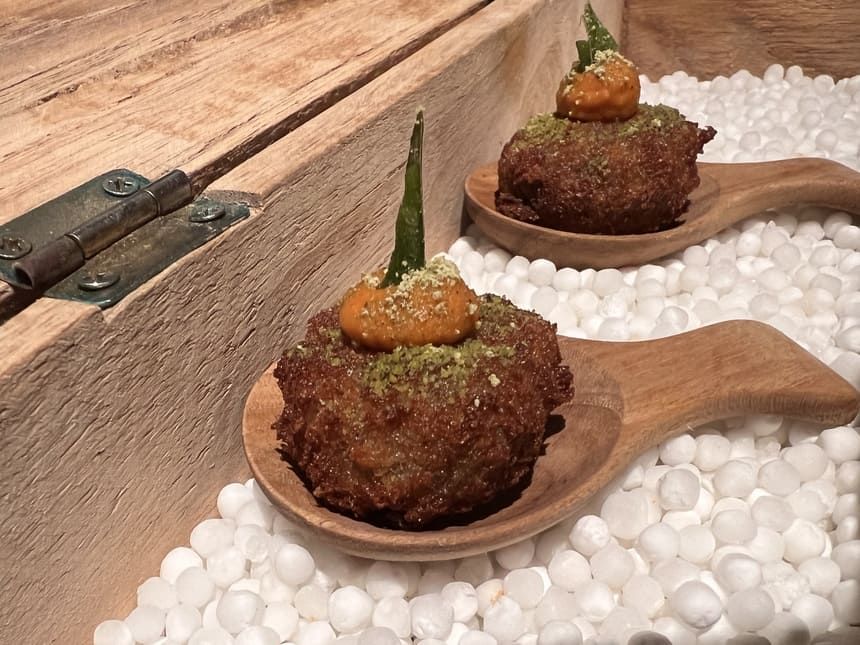
There is definitely not a lack of Indian restaurants in Bangkok, however speaking as someone who has tried perhaps more than 20-30 of them, very few raise their heads from the general pool of “Ok, not great”, and suffer immensely from inconsistency one day to the next. What sets Jhol apart for us is the attention to detail, the vision of the chef, the quality of ingredients and the exemplary service. When you first decided to start a restaurant in such a crowded space, what were your main thoughts on how to distinguish yourself from the crowd.
As you correctly mentioned there is no lack of Indian restaurants in Bangkok. Ranging from the entry level restaurant and up to the fine dining places serving some really good food. And just to let you know there will be some new places opening in the first quarter of this year (2024). How we set ourselves apart is this: Even Indian people come to our restaurant and say this is something very different and unique, something they have never tried before. India is so vast that Indian people still haven't eaten alot of regional Indian food. So just the thought of having an open mind coming to an Indian restaurant and not going for a Butter Chicken, Palak Paneer or a Dal Makhani on the menu, that sets us apart. We have been very consistent in our food, and also consistent in bringing in new dishes and keeping just a few of the classic signatures. We change our menu very often, so this is what I think the guest perceives, that: "Hey today I can go to Jhol and try the tasting menu and even in a week I can try the Ala carte menu and it will be completely different from what I tasted last week".
Also we focus heavily on our beverage program. There are some absolutely amazing cocktails, mocktails, G N T's on the list along with some great spirits and a well crafted wine program. Seeing so many Indian restaurants it really gives us a lot of happiness to see Indian food coming out in a great way. However, if you google Coastal Indian Restaurants, in the last 4 years I think Jhol has inspired a new category of Indian food. There will be a new restaurant opening soon at a big hotel, which actually says Coastal Indian Food. Instead of thinking someone is copying us, we are rather proud that people are recognising food from the coastline, and also the perspective of Indian food is changing. This is what I think sets Jhol apart, along with an eye for detail and service standards.
To put it in short way, the passion from the team and the vision forward is very very clear. So as much as we are competitive, our competition is not with other restaurants but in pushing ourselves every day to be better, bring out new dishes, take feedback from our guests and keep promoting and doing what we do. I believe this is what sets us apart.
Coastal Indian Cuisine is also a rather broad description considering India has over 7000 km of coastline, so which specific regions or areas are you mostly drawing inspiration from. As a chef are you sticking to mostly places you are familiar with or experiment with other styles and flavours from the subcontinent.
As you said, the coastline is very long so we are sticking with the old and new classics. For example a Duck Mapas, or something as simple as a spicy Goan chorizo pilaf that we have just introduced on the menu.. So it can be a signature dish with our inspiration, or something as simple as an ingredient like a Goan chorizo that inspires our chefs to create new dishes. This present menu is highly influenced with Konkan and the Southern Belt, with emphasis on the state of Odisha.

The fact that you do not cater to the “Tikka Masala, Garlic Naan, Big Beer” crowd is also refreshing, as I feel it’s such an easy default to revert to without really having to challenge or evolve as a cook. Do you feel you also suffer a backlash for being so focused on your objectives? Do people often come to Jhol expecting regular Indian dishes or do people tend to do their research beforehand.
Just to let you know we never had butter chicken on the menu, but we have done it in the past for guest requests. It's not that difficult to make butter chicken. We also used to have a tandoor oven and made naan and kulchas in the past, but within a year's time we really thought of being very specific and clear on our theme and sticking to it.
If you are very strong about your concept, people will come to eat what you want them to eat rather than coming to eat what they perceive to be Indian food. So when people come to Jhol they are often lost at the menu because the names and food are new to them, so our team is on hand to explain and help them understand the dishes and guide them in what they can order.
In four years I think we have had five to ten instances where people have reserved tables, and when they came they said they were expecting butter chicken and chicken tikka, but when they left we had changed their perspective. What also happens is with our walk-ins they come in and say they were expecting Indian food, and that's our chance to proudly tell them that this IS Indian food but in a different format. Just a dish like a ghee roast dosa with chicken, hailing from the city of Mangalore, should be given as much recognition as a butter chicken. Something like a ghee roast chicken is more Indian than a butter chicken or chicken tikka masala, because these dishes are anglo-indian dishes made only say 80 years ago for the palate of the British people. Of course these are great dishes, but this is not what Indian food used to be before the British came. So it's kind of tricky but as long as the guest understands what we are trying to do then they are willing to experiment and believe in the team and eat the food that we serve. Also we get so many requests from people and try to go above and beyond to serve our guests, but if they ask for a butter chicken we will politely say no and rather suggest something else for them to try.
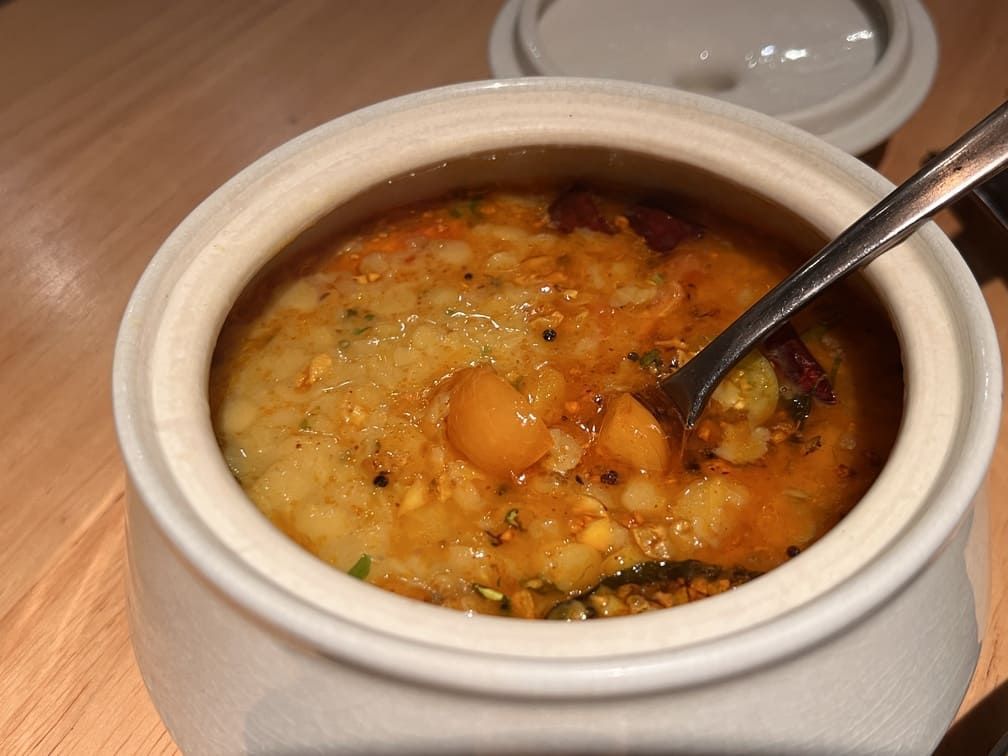
I feel in many ways Indian cuisine is having its moment; Gaggan has definitely helped put Indian born chefs and cuisine on the world stage, Padma Lakshmi is the face of Top Chef, etc. Though your restaurant is not the same as Gaggan in terms of pushing boundaries on the molecular level etc, do you feel people need to accept that Indian food can be complex and elevated, and start looking at it more with respect and seeking lesser known variants and dishes?
There are many chefs who have inspired a generation of New Indian Chefs & Modern Indian Cuisine. Hari Nayak, Atul Kochhar, Vineet Bhatia, Srijith Gopinathan (Technically the first Indian chef to run a 2-Michelin star restaurant) and many more started the foundation way before Gaggan.
I love this question. First of all we have immense respect for chefs like Gaggan Anand, who was a pioneer of putting India on the map doing very modern stuff. Not only Gaggan but there are young chefs like Garima Arora, Deepanker Khosla of Haoma, Himanshu Saini of 2 Michelin Star restaurant Tresind Studio, etc also doing some great stuff. Also the new restaurant Inddee led by chef Sachin Poojary, they are doing some really good stuff, but they are very different concepts and very modern in their approach.
The last part of the question says "People need to accept that Indian food CAN be complex and elevated", I need to tell you this, Indian food IS complex and elevated. It's our fault as a culture that we didn't take enough pride to tell the world how elevated our food is and do better plating and use better ingredients. And to document the same, like the French did, that's it. For example, London has the most Michelin star restaurants in the world, since India doesn't have Michelin yet, however most of these restaurants are diluting their food to the palette of the locals. This is something we believe needs to stop. Take the Italians for example. If the pasta is al dente and a guest tells the chef the pasta is undercooked, the chef will tell them to their face that this is how it is supposed to be cooked.
I think the new generation of chefs understand that. Indian food is one of the most complex and elevated food anywhere in the world, and we learnt that from our mothers. We always eat great at our homes. Our mums wake up in the morning, and starting from breakfast, lunch and dinner it's always a menu she has been working on from the previous night. We don't eat toast and butter for breakfast. Even a simple thing like breakfast is so elevated in our culture. It has a lot of emphasis and importance. Indian food is one of the most technically advanced and complex foods in the world, and it's something we should all be proud of and make it approachable, use better ingredients, and use storytelling.
As you said, the lesser known dishes should now gain as much importance, that's how it should be. For example, our research and development for just breads from coastal India, has over 20-30 different versions we are working on, and our current menu has over 10-12 of them. Something as simple as an Appam or Idli, this is something that we eat at home, yet it's as complex as making the fermentation and using the perfect temperature to get the dough ready so it can ferment properly to produce these breads. Indian food is actually very complex, it's just that it needs more storytelling for the guest to understand. Sometimes Indian food can be over-spiced and complicated in a way that a European may find too heavy, however if it is well balanced -for example you come for a tasting menu- you'll leave without feeling extremely heavy or having acid reflux. We want to provide a well balanced and well executed product as would be expected from a restaurant like Jhol.
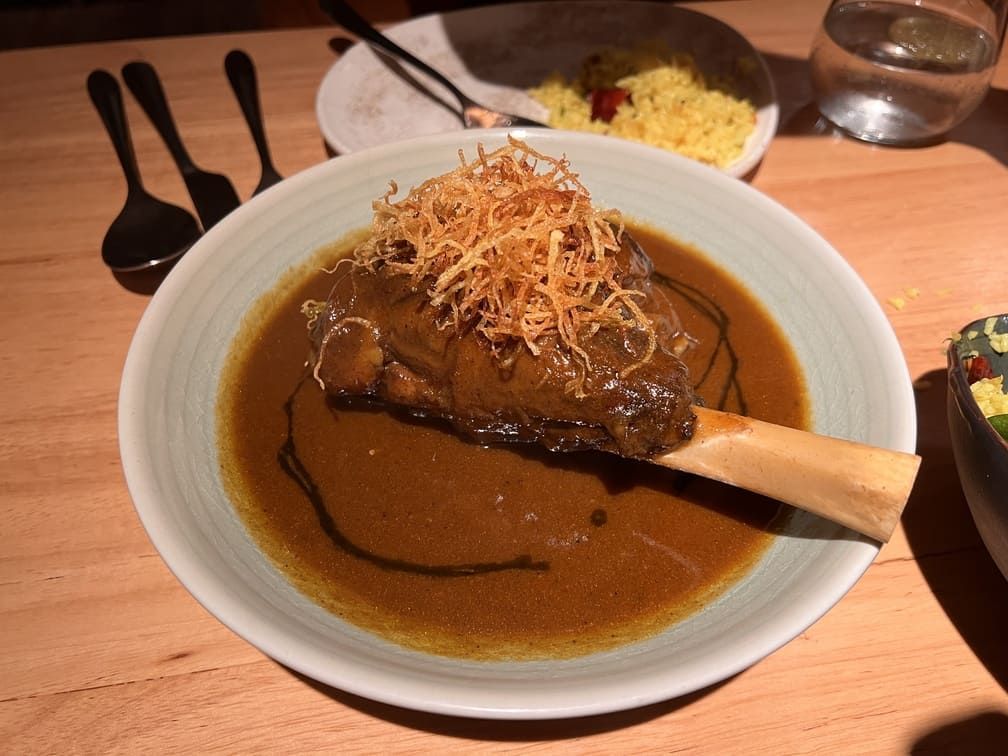
If you were to choose one area of India where you feel the cuisine is tragically overlooked or under-rated what would it be and why?
If you see North Indian food on its own, I wouldn't say it is overrated but it is the only version of Indian food that has been put out to the world. Mind you, even if you see the influence of the French in the south and the Portuguese in Goa, there are so many dishes that have been inspired from these countries combined with the local food.
In terms of underrated I would say the East part of India. I hail from Calcutta, West Bengal, and our head chef is from Odisha. East Indian food is highly underrated and is so regional that many Indian people haven't eaten most food from there. I'm just talking about two states on the coastline, but East India is very big. There are seven states in the extreme East that are not part of the coast like Meghalaya, Nagaland, this food is not reached by most Indian people. The food has almost Chinese influences but it's still a part of India. I would say it's the most underrated part. We are still trying to get our dishes from the Eastern coastline, West Bengal and Orissa, but I would say the North East part of India is so underrated and the food is so so different from the rest of the country.
If you have a night off in Bangkok, where are you eating? Give the readers a little insight into a favorite local Thai spot, a great Phad Kra Prow, or something totally random that is a go-to for you?
We do eat out a lot, but there are a lot of guests or friends coming from other countries so we always recommend places. Bangkok you are very spoiled with options, in every segment. But for example if you want to eat Thai, there are so many categories, but say a Phad Kha Prow, the best always comes from the street vendors. You can pretty much eat anywhere and you won't be disappointed.
However if you are asking for a restaurant in a casual setting then we always recommend Sri Trat. Also Charmgang, and their recently opened Charmgang Curry shop, do some amazing curries. These two would be on the top of the list.
For something more fancy,
Sorn,
Potong,
Baan Thepa and
Samrub Samrub Thai.
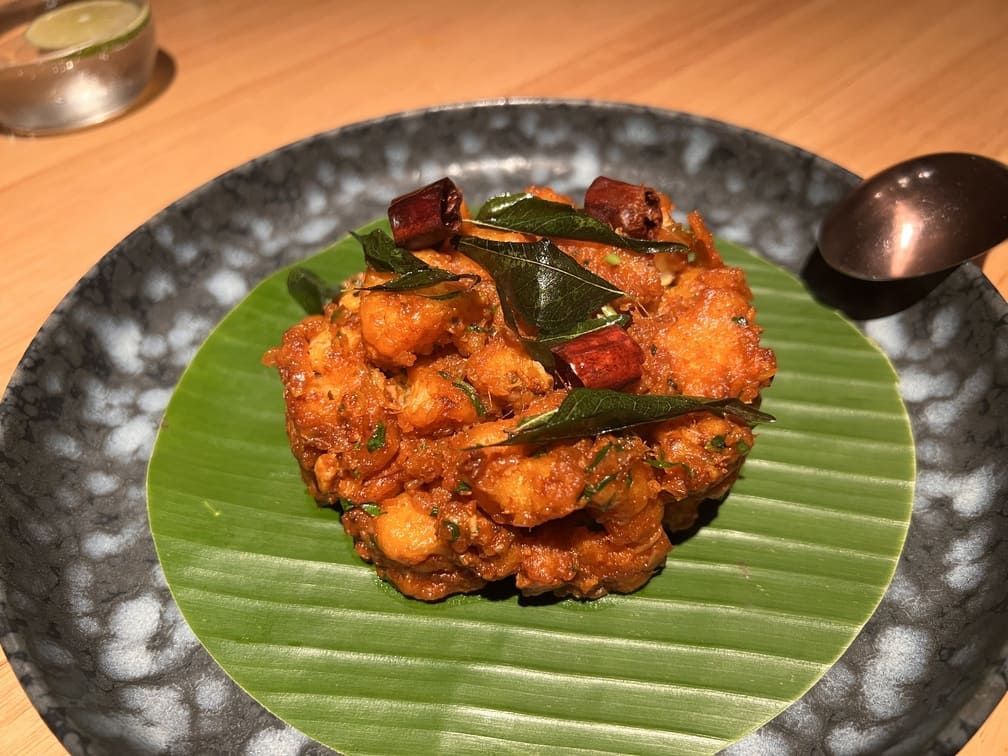
What are some chefs / restaurants in Bangkok that you feel deserve a shout-out? Places that are doing something really well but seemingly not getting enough credit for it. Alternatively, is there a specific chef you have your eye on to see what they will do next?
I think Bangkok itself has a lot of talented chefs and restaurateurs doing a phenomenal job in different areas of cuisines. I think one of these is
Mia, run by chef and his to-be wife, they got their due recognition with a Michelin star. Mia is a modern European restaurant that we highly recommend to people.
Clara is also another.
I would like to do a shoutout to the whole food and beverage scene in Bangkok. I have worked in F&B in many different countries in Europe and UAE, but the scene in Bangkok is different because it's very well knit and everyone is helping each other and celebrating with each other, and in that way there is a great connection between us that is very important for growth. We share the same guests and therefore we all have common feedback and common queries, and can help and support each other in that way.
I believe that recognition comes these days in being listed on the 50 best, or getting a Michelin star, and I have noticed that most restaurants getting into the guide are Tasting Menu restaurants. Very few in the Michelin guide have an Ala Carte menu. This needs to change because there are so many gems that are not doing tasting menus but are not getting the recognition that they deserve based on just this detail.
Do you have an overall long term vision for Jhol’s evolution, or do you find yourself and your menu being influenced by things you are currently experimenting with or directions that your test kitchen is playing with?
The long term vision of Jhol is very simple. The first criteria we learnt from the pandemic is that you can have a great concept and a great story, but is your restaurant sustainable and are your employees being taken care of? The first common objective for Jhol is that anyone working for Jhol is getting the perks and benefits of it, the second is that the restaurant is sustainable and earning enough profit to survive and expand.
We want to grow as a brand and we want the world to know we are a restaurant which carved out another segment of Indian food called Coastal Indian Food. We are already seeing that happening with so many new Coastal Indian restaurants opening worldwide now.
As for expansion, we are looking at two new cities. At the moment we have started to work on Jhol in Kuala Lumpur in 2024. We want to see how the Malaysian market takes to it because a lot of Malaysian food is influenced by south Indian, specially from the Chola dynasty who traveled over and settled over 1000 years ago, in both Malaysia and Indonesia. So you'll see a lot of South Indian influence there.
In terms of experimentation, the kitchen is continually in the process of testing ideas and pushing the envelope so that our guests can rest assured that they can try something new or different every time they come to Jhol.
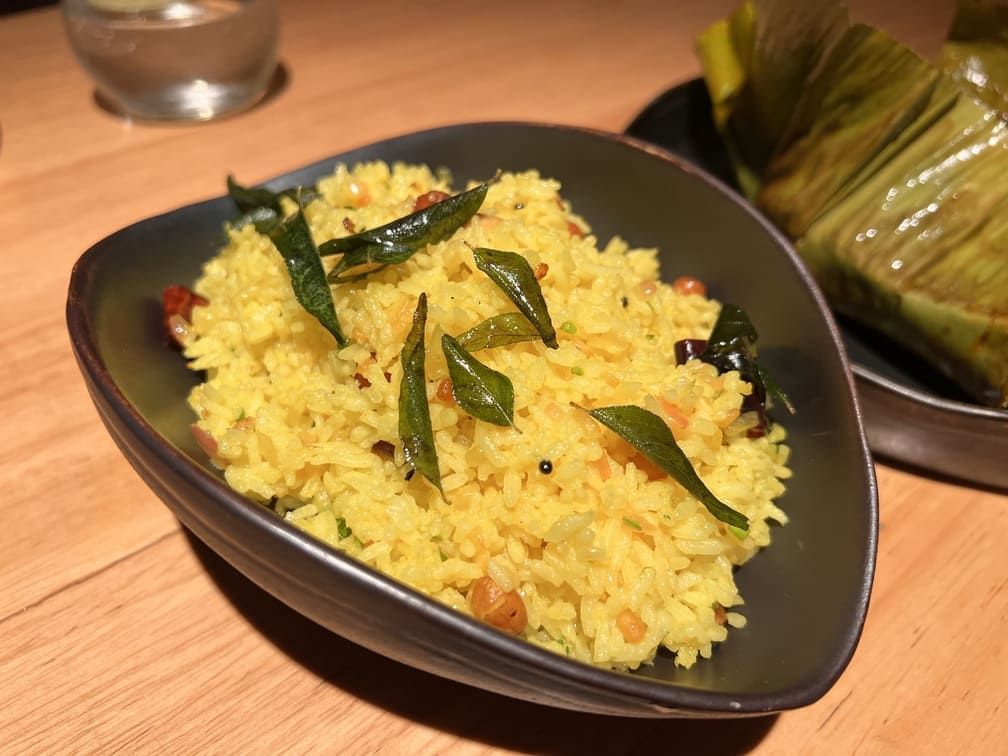
In closing, sustainability and locally sourced ingredients are a very important part of the current culinary conversation. What are some ways in which Jhol pushes to leave a better footprint behind, or avail local farmers/fishermen etc.
To start with: our understanding of the word 'sustainability' and the use of local and seasonal produce. First of all we were born and brought up in households where our mothers and grandmothers were probably the biggest chefs that we realized. We were eating locally sourced food, as most Indians do. Our mothers would always be making seasonal dishes with seasonal vegetables and produce, Fermentation, sustainable, zero-waste kitchens have been pioneered by Asian grandmothers long before these words became commercialized.
For us sustainability and seasonality are not just words, but are things we practice and don't talk about too much. We don't believe in zero-waste but we would try to reduce our waste. We don't have a walk-in freezer which means our chefs cannot order in bulk. Therefore orders are done almost daily depending on how many reservations we have, the time of year, if its busy or not etc. I feel this defines sustainability, since we use so many local ingredients that can be substituted for their counterparts in India due to their similarity.
For us this Ethos should not be told as a story, but just followed quietly. Our inspirations are our mothers and grandmothers, who we look up to. How they even took Jackfruit seeds and made food out of it.
"THE DEATH OF THE MAITRE'D"
I just wanted to end with something. I feel these days that the eagerness to become an elevated restaurant or a star restaurant has become too focused on "Chef-Forward" restaurants. Some years ago restaurants were known by their Maitre D'.
I want someone to write a documentary about this: "The death of the maitre'd". I feel like now when the chef is the face of the restaurant, a lot of things have been undermined. Just the PR essence, people come and spend money at the restaurant but something is missing. Some places are very adamant about putting themselves and their story at the forefront rather than the guest. I feel people should re-evaluate this. If I'm a guest and I go to a restaurant and someone tells me not to laugh, or to shut up and eat, it's not good. I see this happening that many places are getting too egoistic, and I want to return to the old days when charm and hospitality was as important as the food and service.
In traveling and working around the world in the best hotels and restaurants for 18 years you can get good food in a lot of places, but what you remember is how you were made to feel there. I remember restaurants based on the dishes I was served of course, and I can remember a good dish for a year or two, but if I go back five years later I will definitely remember how I was made to feel in that place. I feel many restaurants now are neglecting this aspect.
If you come to Jhol and order just one dish and leave, or stay for an entire tasting menu and buy the most expensive wine, we want the guests to remember the experience. We believe the guest comes first and we want everyone to have a good experience there.
In India we have a saying that "The Guest is God", and I dislike when people are referred to as customers.
At Jhol we have guests, not customers.
Interview between The Mouth and Anirban Nandi published with permission, January 2024.
All food photographs were taken at Jhol in March 2023 by The Mouth. Menu items may vary.

